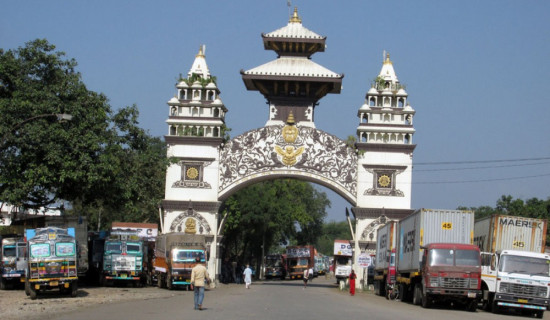- Sunday, 15 February 2026
Press Freedom Vital For Citizens’ Wellbeing
As Nepal is moving ahead as a federal republic, a series of political exercises have been carried out to consolidate democracy. However, there have also been attempts to undermine the rights of the citizens in different ways. The press is one of the major pillars of democracy but it has been always under attack directly or indirectly. According to the Freedom Forum’s monitoring report recorded from May 2022-April 2023, around 79 media persons, including eight female and four media houses were affected. Last year, 96 media persons were affected in 55 incidents of violence.
The report states that out of the 79 media persons affected this year, 29 faced obstructions/vandalism, 22 were attacked, 16 were abused verbally or misbehaved with, eight received general threats or even death threats and four were arrested/detained. Similarly, three media houses were attacked, and one vandalised. The data on affiliation of media persons include 16 affiliated to television, 12 associated with online news portals, 11 each with newspaper and radio and the remaining 30 mentioned under 'others' category include news agency, online television, YouTube channels, etc. Likewise, the affected media are Radio Banglachuli, Avenues Television, onlinekhabar.com and www. ukeraa.com.
Looking at provinces, the highest number of incidents i.e. 13 took place in Bagmati Province with majority (nine) in the federal capital, Kathmandu. In Kathmandu, 36 media persons and three media houses were thus affected. Six journalists in Koshi Province, 11 journalists in Madhesh Province, 12 journalists in Gandaki Province, five journalists and one media house in Lumbini Province, five journalists in Karnali Province and four in Sudurpaschim Province were affected. In majority of these incidents, journalists were affected by security agencies followed by political cadres and civil staffs. Out of four media houses, three were attacked by the political cadres.
Biased reporting
Nepal and Sri Lanka are noted as countries where freedom of expression, gathering, press and speech are the best in South Asia, and several conferences on human rights are mostly conducted here as these countries are more welcoming to visitors because of less visa hassles. These and the new laws promulgated to ensure the rights of Nepali citizens are very positive. However, there has also been exposes done by the press and the investigative authorities of Nepal which show that greed has increased among politicians and those holding the power structure in the country both in the government and the private sector. The corporate media houses are also often accused of involving in biased reporting and several journalists and media houses are openly known to be affiliated with one political party or another.
Looking at some of the political upheavals in Nepal revolving around the pre-election campaigns, post-election government formation, breakage and reformation, it is clear that the ambitions of the politicians have become so toxic that they hamper the stability and development of the country. At such a time, it is important for the aware citizens of this country need to sit down and analyse what is actually happening. If this is not done, the progress of the country will be at stake. In the federal set-up, the role of the provinces, their government structures and correlation with the central government is the key to the overall development of the country.
Comparing the situation of different places in Nepal to what it was in 1990 when democracy was restored, one can say a lot of changes have taken place. There is a lot of progress in roads and infrastructure in all seven provinces, although some are still lagging behind in several aspects when compared to the more urbanised provinces. Now there are education institutions and medical facilities in all the provinces. The infrastructure may still not be enough and adequate. Now it is important to look into how these structures can be tailored so as to make sure the people of these areas benefit the most. The power struggles of the governments in the provinces are pathetic. The situation of journalists in the provinces is improving but it is still a challenge to get information and resources for the independent media to prosper.
Investigative reporting
Nepal has now garnered good experience of democratic exercises and it has learned from global examples on what approaches of development can be adopted to move towards progress. There are now many Nepalis of all gender and communities who can contribute both in academics and in all the forms of the professional arena. The only thing that is required is to have the will for all to join hands and move towards developing the provinces and the country by utilising our own resources both human and otherwise.
This is where the role of the media can be crucial. Instead of giving too much space for the politicians and their follies because of political ambitions, it is important for the media to do short and long investigative and well researched stories on how to develop each of the seven provinces so as to help people towards their wellbeing. To do this an independent and free press is required. The Freedom Forum report suggests that the journalists must be digitally equipped with the necessary skills and knowledge to exercise their rights safely. A substantial discourse is needed in the media landscape on how Artificial Intelligence would impact on Nepali media persons and press freedoms. The Nepali press and the media persons need to be aware of adverse political waves to ensure a free, independent and professional media.
(Namrata Sharma is a journalist and women rights advocate namrata1964@yahoo.com Twitter handle: @NamrataSharmaP)

















